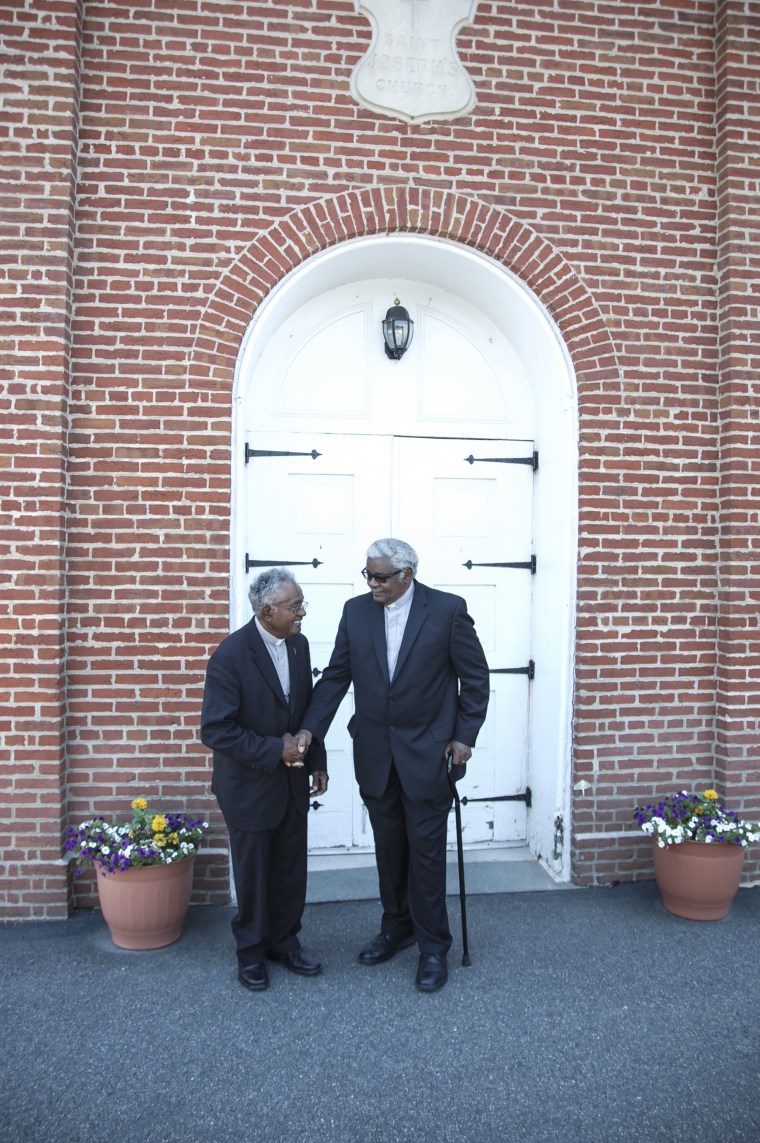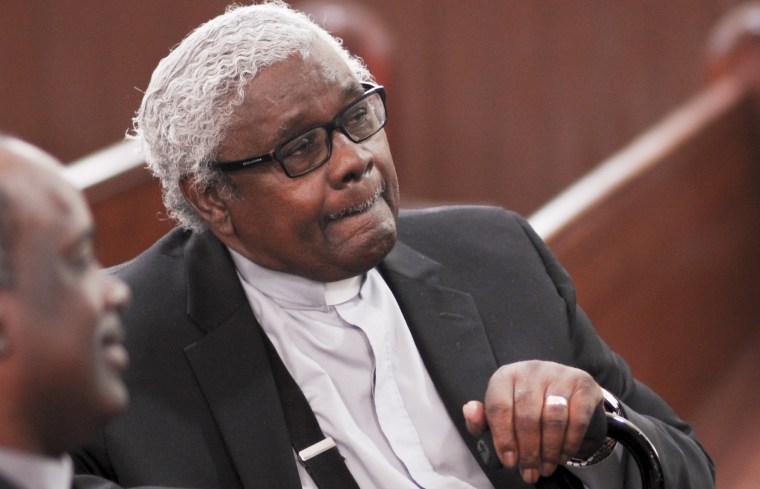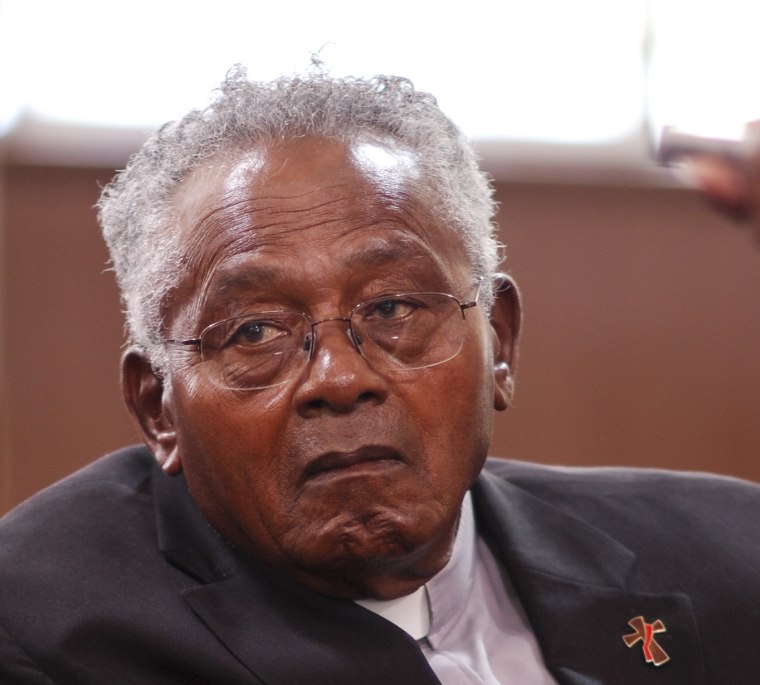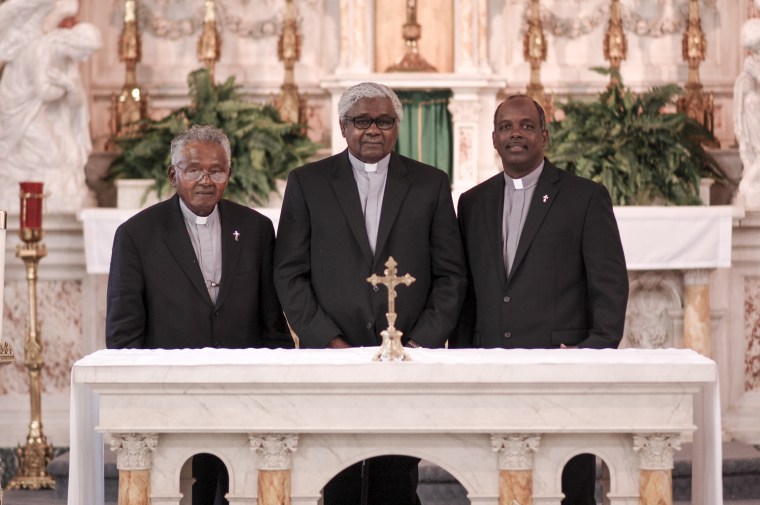Though small in number and rarely recognized, black Catholics in the U.S. have been making significant contributions to the church since 1565. Of the 76 million Catholics in the United States, just 1.5 million are African American according to the Center for Applied Research in the Apostolate (CARA).
St. Mary's County Maryland was one of the earliest settlements to welcome black Catholics and two African American brothers that helped shape Catholic history are currently residing there.
James and John Somerville, along with their now deceased brother Joseph are recorded as the only three brothers who have served together as permanent deacons in the Catholic church. John became a deacon in 1981, James was ordained in 1982, and Joseph’s ordination was in 1986.
Deacons preparing for the priesthood are called transitional deacons. Those not planning to be ordained priests are permanent deacons. The diaconate is the first of three ranks in ordained ministry.
“It’s interesting,” says John, “We became deacons in reverse order of our age. I’m eighty-five, the youngest of the three and ordained first. James is 86 and was ordained second, and Joseph, the eldest, was last. Though Joseph is deceased, James and I are still very actively serving.”

The three siblings have worked in several capacities during their combined 79 years in service. John helped establish a pregnancy center, served Catholic Charities in the medical field, feeding and clothing the poor, and housing the homeless. He has also assisted in marriage counseling, youth retreats and worked closely with the Archdiocese of Washington.
In addition to working in the parish, James also served at the pregnancy center and worked with Catholic Charities. “I retired at the age of 75 and they added 11 more years to my activities,” says James. “When I resigned, I was asked to continue on. And I’ve been trying to do what I can since then. I participate, really, in anything that comes up.”
In recognition of their dedication to the church and their community, the brothers have received numerous awards including a paper medal given to John from Pope John Paul II and the Cardinal Award given to James.

The Somervilles were already serving their community long before joining the diaconate. James worked for the state highway administration and John was employed by NSA. Prior to his death in 1996, Joseph served as a Washington, D.C. police officer. During his tenure on the police force, he spotted one of America’s Most Wanted and was shot 9 times in the process of catching the outlaw.
Joseph, James and John have served the church since childhood. After Joseph died, John’s 49-year-old son, Keith Somerville, was compelled to follow in the footsteps of his father and uncles.
In Aprilof 2015, he was ordained a deacon and currently works with the preservation of families within the church. The ordination makes John and Keith the only father and son pair serving as permanent deacons in the archdiocese of Washington.
“Being very young and seeing my two uncles, deacon James and Joseph along with my Dad Walter, I was inspired,” says Keith. “Of course, the Lord works in mysterious ways and he worked on me to become who I am today.”
Though the Somervilles have dedicated their lives to the diaconate, they’ve witnessed the decline in church attendance among other Catholic members, especially African Americans. They fault lack of education, participation, and secular influence.

“The problem is lack of involvement,” says Keith. “If you don’t get involved, you won’t see the importance of coming.”
John points to a decline in study and involvement in the ministry. “I believe it’s a lack of education. Once they go through their first communion and confirmation, they basically drop off their education in religion. And usually that’s where the cut off is for a lot of blacks.
They aren’t putting their money into the church, practicing their faith, or studying the Bible. Their recourse is, ‘I don’t need it. I don’t know too much about it so forget it.’ It’s easy to forget something you don’t know much about.”
James, John and Keith believe Pope Francis' visit is a step in the right direction and will bring people back to the church.
“I have seen three or four popes, really, and I think he has a different perspective on life and I think his visit to the U.S. will be fantastic,” says John. “The simplicity of Pope Francis is something I think we need to see here. He cares for the common folk and his visit will help bring us together.”
“I understand the many responsibilities of the pope,” says James. Pope Francis has done an amazing job and I look forward to his visit.”
With an estimated 1.2 billion followers, the Roman Catholic Church is one of the largest religious groups in the world.
